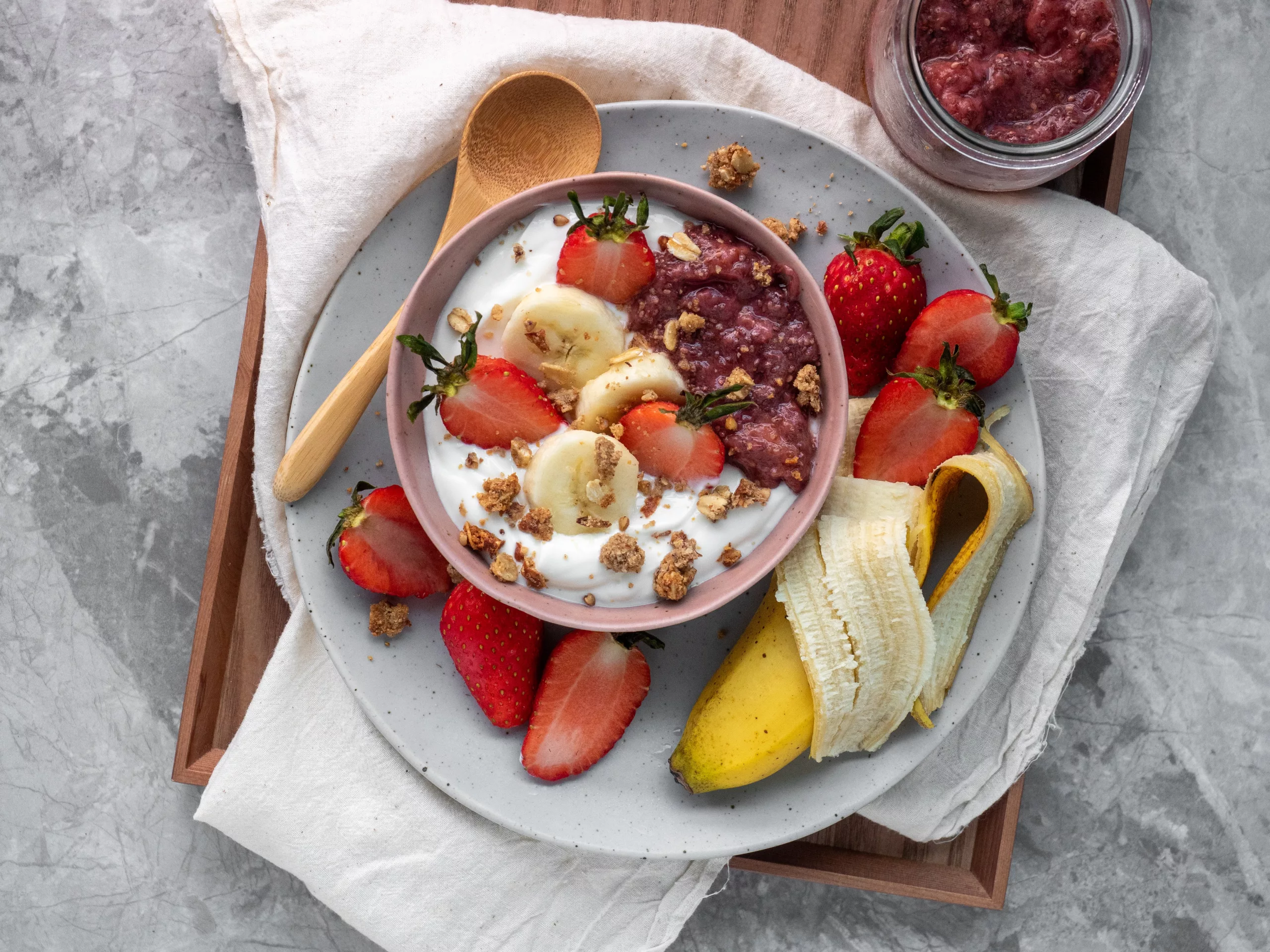Written by Kimberley Gittens, RD on behalf of Rachel McBryan, RD
Irritable bowel syndrome (IBS) is a prevalent gastrointestinal condition that affects the large intestine. People with IBS experience a range of symptoms that can include abdominal pain, and changes in bowel movements. The severity of these symptoms can vary from person to person, and some people may experience all of them, while others may only experience one or two.
Some of the symptoms that are often associated with IBS may also occur in other gastrointestinal (GI) conditions. Given the similarities in symptoms between IBS and other GI conditions, it can be challenging to diagnose IBS accurately. However, there are specific diagnostic criteria that healthcare professionals can use to distinguish IBS from other conditions.
Getting an accurate diagnosis for your stomach and bowel problems is key to getting the right treatment. Despite similar symptoms, GI conditions have different causes and require different treatments. Being misdiagnosed may lead to receiving ineffective treatments or unnecessary medical procedures which can be frustrating. This is why it’s important to work with a healthcare professional, like a Registered Dietitian, to get an accurate diagnosis and develop a treatment plan that’s right for you.
Role of Gut Bacteria in IBS
Your digestive tract, or gut, is home to millions of bacteria. These bacteria play an important role in producing vitamin and mineral, supporting your immune system and much more. This gut eco-system is impacted by many factors in your life, including:
-
- Diet
- Antibiotic use
- Stress
Some bacteria are considered “good” bacteria, while others are less beneficial to your health. A change in the balance of “good” and “bad” bacteria can exacerbate GI symptoms associated with IBS such as gas, bloating and cramping.
However, prebiotics and probiotics can be used to help store your GI balance and alleviate symptoms.
What are Prebiotics and Probiotics?
Both prebiotics and probiotics play a role in supporting your gut health. Probiotics are living bacteria that are found in various food and re-populate your gut. On the other hands, prebiotics are non-digestable fibres that good bacteria grow and thrive, which in turn helps to maintain a healthy balance in the gut microbiome and improve digestive health.
Probiotics for IBS Managements
There is some promising reports on the use of probiotics for IBS. Research shows that probiotic supplements can be beneficial in managing IBS. One study found that probiotics were helpful for reducing IBS symptoms, while another study found that certain strains of bacteria were more effective than others in reducing IBS symptoms such as bloating, gas and abdominal pain.
Probiotics can be obtained naturally through foods such as,
-
- Yogurt
- Kimchi
- Kefir
- Sauerkraut
Probiotics are also available in supplement form, such as capsules, tablets, and powders. It is important to know that not all probiotics are created equal, and it is crucial to choose a high-quality probiotic with strains that have been clinically studied for effectiveness in managing IBS.

Prebiotics for IBS Management
Adding prebiotics to your diet could help relieve your GI symptoms. Prebiotic foods have been shown to reduce gut inflammation and support regular bowel movements, which can support your IBS management.
Studies have found that prebiotics can help to reduce symptoms of IBS such as bloating, gas, and abdominal pain. One study in particular found that people consuming prebiotic supplements had a significant reduction in abdominal pain and bloating comparing to those that did not use the supplement. Additionally, a systematic review showed that prebiotic supplementation helped to overall reduce symptoms associated with IBS.
Should You Try Prebiotic or Probiotics?
Working with a Registered Dietitian can help you understand and address your GI symptoms. Book a FREE discovery call with today to get started!
Prebiotics can be found in a variety of foods, including:
-
- Bananas
- Garlic
- Onions
- Asparagus
- Beans
- Whole grains (like barley and oats)
However, it is important to note that some prebiotic fibers may trigger symptoms in certain individuals with IBS, such as those with fructose malabsorption or lactose intolerance. This means that it is important to work with a healthcare professional to determine which types of prebiotics are best for your individual needs.
Prebiotics and Probiotics Combinations
Prebiotics and probiotics can work together to promote a healthy gut microbiome. When taken together, prebiotics and probiotics create a symbiotic relationship that enhances the growth and activity of the beneficial bacteria in the gut. This can lead to improved digestion, increased nutrient absorption, and reduced inflammation in the gut, all of which can help alleviate symptoms of IBS. Studies have found that the combination of prebiotics and probiotics can be more effective in reducing IBS symptoms than either substance alone. However, it is important to choose a high-quality supplement with strains that have been clinically studied for effectiveness in managing IBS. It is also important to consult with a healthcare professional before starting any new supplement or diet regimen.

Key Takeaways
Prebiotics and probiotics can be beneficial in reducing symptoms of IBS by promoting a healthy balance in the gut microbiome. Prebiotics are non-digestible fibers that help the good bacteria in the gut grow and thrive. Foods that are high in prebiotic fibers include fruits, vegetables, whole grains, and legumes. Probiotics are live bacteria that can help to improve digestion, boost the immune system, and reduce inflammation in the gut. Foods that are high in probiotics include yogurt, kefir, kimchi, and sauerkraut. It is also possible to obtain prebiotics and probiotics through supplements.
While there is no one-size-fits-all diet for managing IBS, being mindful of trigger foods and incorporating prebiotics and probiotics into your diet can be beneficial in reducing symptoms. As always, it is important to consult with a healthcare professional before making any significant dietary changes or starting any new supplement regimen.
Beat the Bloat
Working with a Registered Dietitian will ensure that you’re meeting all of your nutrient needs, while reducing GI symptoms. Book a FREE discovery call to get started!
Kimberley is a Registered Dietitian, licensed in Ontario. She helps clients across Ontario control their blood sugars and reduce their risk of chronic conditions.

